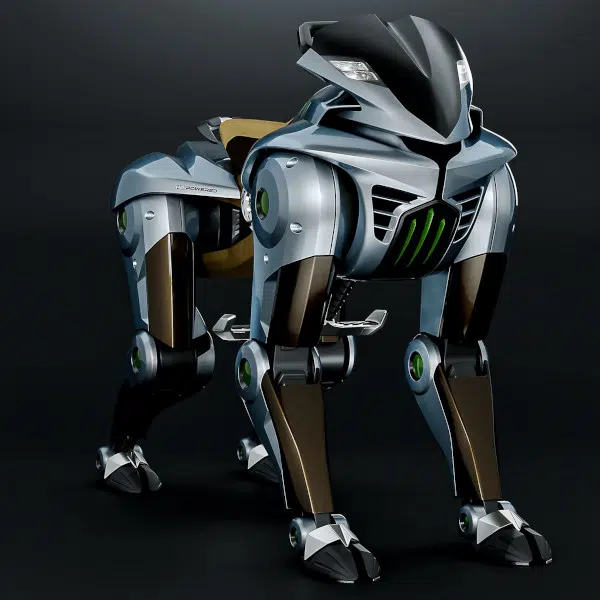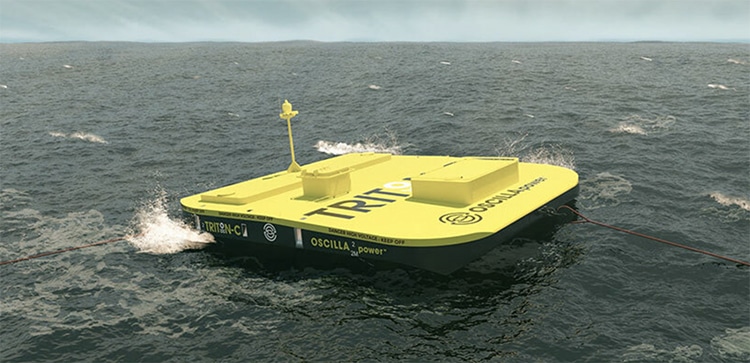
Photo: Oscilla Power
Harnessing ocean waves can help mankind power a sustainable future. Floating turbines bob up and down while turning the motion of water currents into electrical energy. Oscilla Power, one of the companies to pioneer wave energy converters (WEC), has recently launched their Triton-C WEC in Hawaiian waters. After a long period of development, the new device will now be tested for its power output while facing the rough elements of the open ocean.
Triton-C uses a multi-mode point absorber strategy. This consists of a geometrically optimized surface float connected to a ring-shaped, vertically asymmetric heave plate by three flexible tendons. Unlike most WECs, Triton’s floating portion on the surface can harvest energy from ocean waves across all varieties of movement with the current: heave, pitch, surge, roll, and yaw. This provides better energy capture capabilities across a variety of oceanic conditions. Average annual energy production is higher and the cost of electricity falls.
This promise of electrical output and durability is about to be put to the test in the waters off of Hawaii, where it will begin its work in a Marine Corps base. The Triton-C can produce 100kW in energetic waves, however, the test site will only allow 30kW (enough to provide power for about 25 houses) in production.
In the future, larger versions of the Triton-C may provide power for settlements in remote locations such as the Alaskan coast. Output for the larger units may reach 1 MW. A device of this size is intended for a trial in the Indian Ocean. Governor Jay Inslee of Washington, a state which helped fund the Triton-C research, said, “The launch of the Triton-C is an impressive reflection of the clean energy innovation supported by our state’s Clean Energy Fund.”
The Triton-C wave energy generator from Oscilla Power harnesses the energy of the ocean's movement.
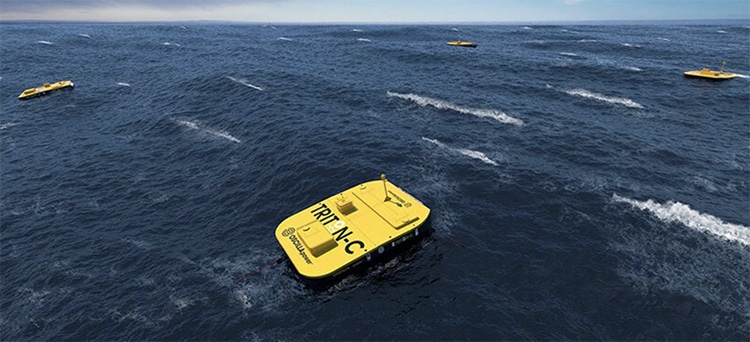
Photo: Oscilla Power
Such power is a renewable source which will be important to a climate-friendly future.
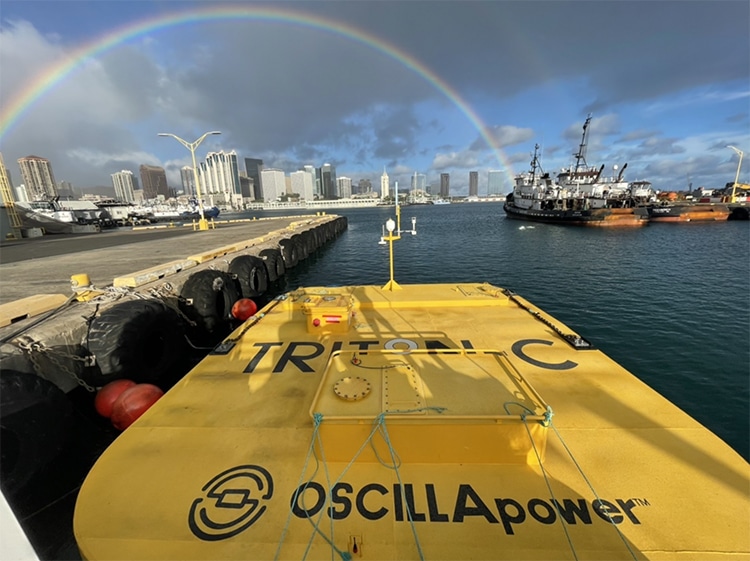
Photo: Oscilla Power via Twitter
The Triton-C is at last launched and ready for its open-water test run.
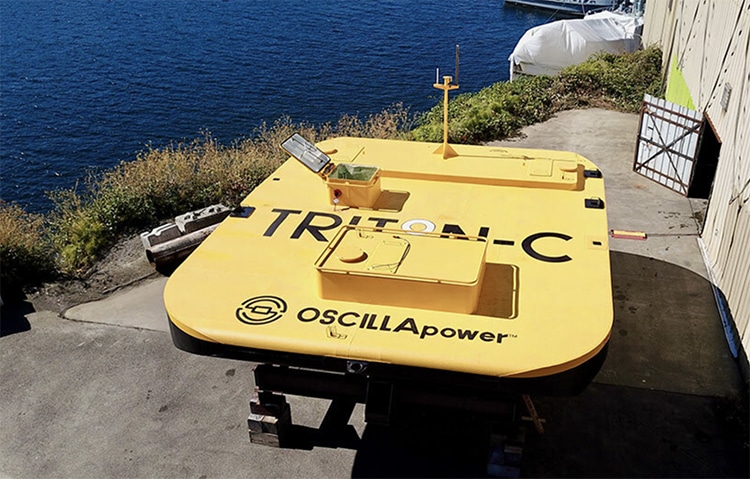
Photo: Oscilla Power
Larger versions of the Triton-C could produce 1 MW of energy in the future.

Photo: Oscilla Power
Learn more about this project below.
Oscilla Power: Website | Instagram | Facebook | Twitter
h/t: [designboom]
Related Articles:
Renewable Energy Will Surpass Coal as a Source of Electricity by 2025
Over 190 Countries Pledges To Protect 30% Of Earth’s Land and Water Ecosystems
Innovative Turbine Combines Wind and Solar Power To Create Sustainable Energy System
French Law Now Requires Large Parking Lots To Be Covered in Solar Panels















































































